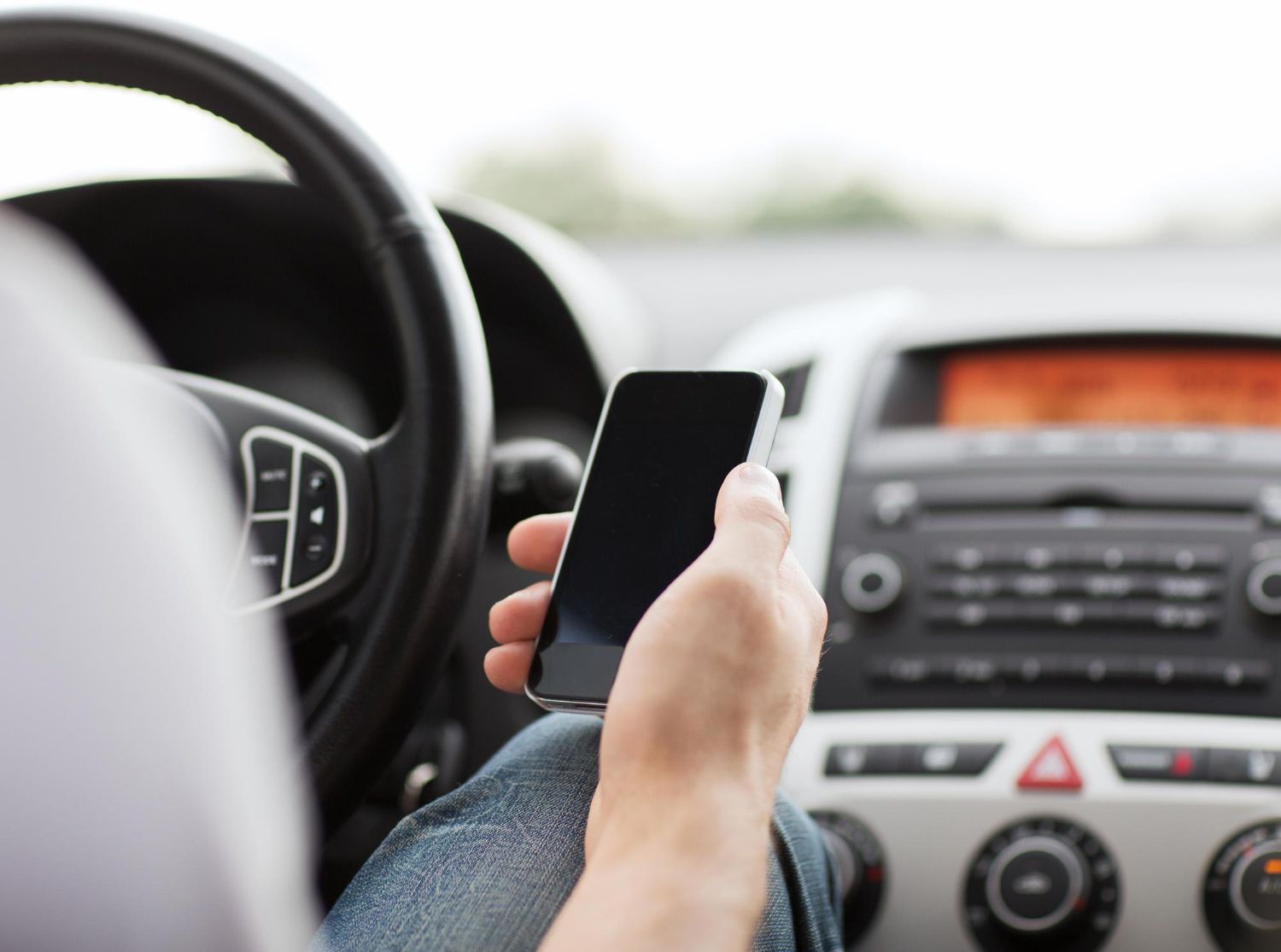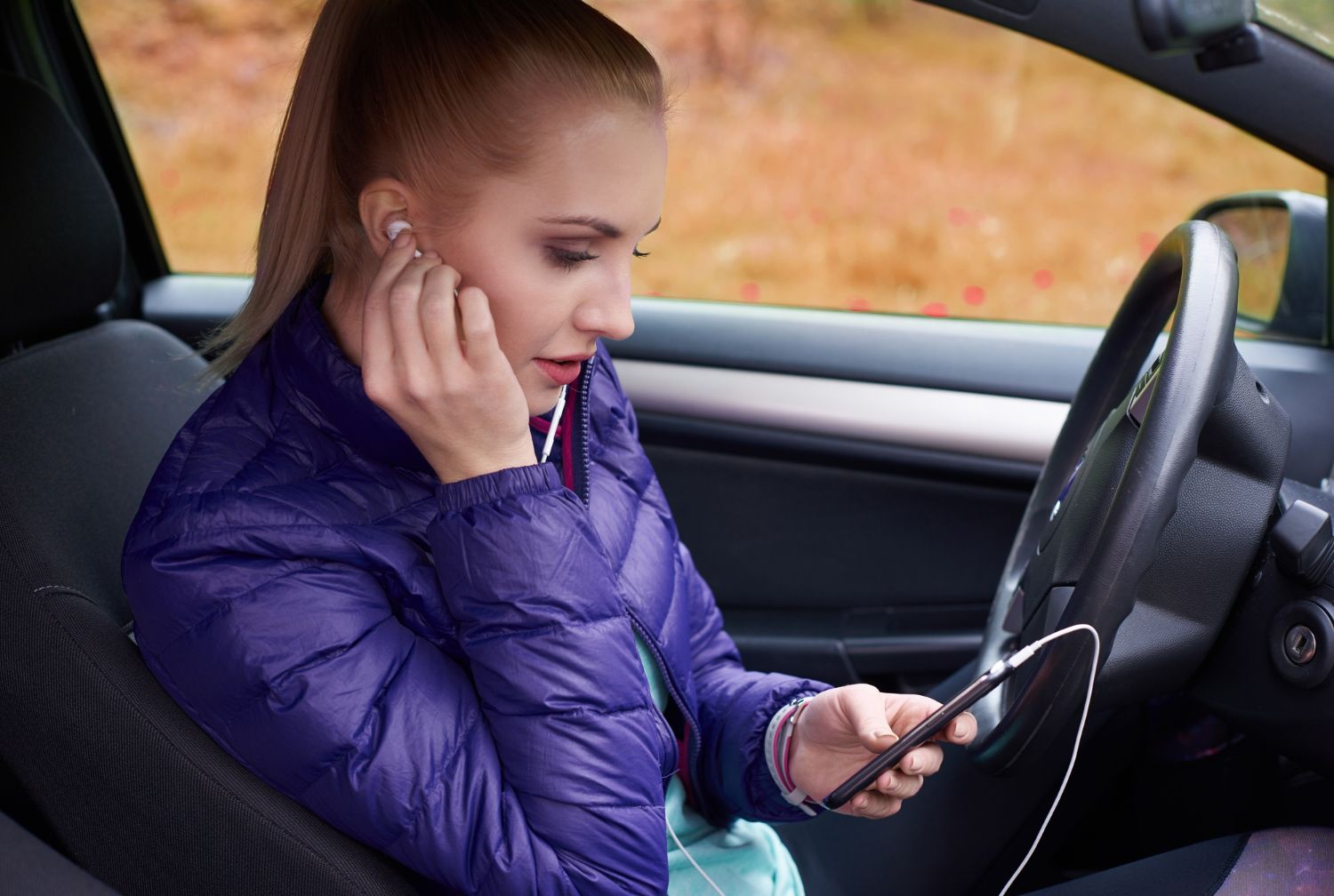Is It Illegal to Wear Headphones While Driving?
Written by Law Office of Rolando Cantú, reviewed by Rolando Cantú
Is It Illegal to Wear Headphones While Driving?
As modern technology continues to evolve, more drivers are turning to headphones or earbuds while driving their cars. While it can be a convenient way to listen to music or podcasts during your drive, is it legal? Let’s take a look at the laws and regulations surrounding wearing headphones or earbuds while driving, and how a car accident attorney might help.
The Laws Vary by Location
Firstly, it's important to understand that wearing headphones while driving is not necessarily illegal in every state. However, there are some restrictions in certain states about how and when you can use them.
Because laws vary from state to state, it is important to
research the laws in your state or region before using headphones while driving. In some cases, only one earpiece may be worn; in others, both earpieces may be worn as long as the volume is low enough for the driver to still hear outside noises. Furthermore, some states have banned all types of headsets (including Bluetooth) from being used while operating a vehicle.
For example, in New York State, you can wear one headphone as long as it does not cover both ears. This means that if you are wearing headphones with just one ear covered, you’re okay—but if you have two speakers (such as with most Bluetooth devices) then this would be considered illegal.
In which States Is It Illegal to Wear Headphones While Driving?
Many states across the US have different laws and regulations regarding wearing headphones or earbuds while driving. These states have either outright bans on headphone use or restrictions:
- Alaska
- California
- Illinois
- Louisiana
- Maryland
- Minnesota
- Rhode Island
- Virginia
- Washington
In these states you could face a hefty fine if caught wearing headphones while behind the wheel. Other states have legislation which makes it illegal to wear headsets while operating a motorcycle or other vehicle.
There are some exceptions in these states, such as wearing hearing aid devices. Also it is perfectly
legal for emergency vehicles, emergency personnel and police officers, are exempted from the ban and can wear headphones while on duty.
Additionally, many states have laws that restrict the use of headsets or other listening devices for drivers who are under the age of 18. In some cases, these laws apply even if the driver is only using one headphone or earbud. Therefore, it is important to check local laws before deciding whether or not to wear headphones while driving.
These eight states allow driving with headphones but only one ear covered:
- Arizona
- Colorado
- Florida
- Georgia
- Illinois
- Massachusetts
- New York
- Pennsylvania.
Some states that allow headset use while driving also have regulations regarding how loud the music or car stereo should be. In most cases, it is illegal to play any audio at a volume that hinders the driver’s ability to hear external noises, hear emergency sirens or conversations.
It's also important to note that certain activities are prohibited by law regardless of whether or not headphones are involved—for example,
texting and talking on a handheld cell phone while driving is illegal in most states and provinces around North America.

If using headphones or earbuds while driving isn't illegal in your state, there may still be safety concerns associated with doing so. For example, school bus drivers and child care providers may also be prohibited from using headphones while operating a vehicle, even if it is legal in their state or province.
Wearing headphones restricts your ability to hear traffic noise and other warning signs around you which could potentially put yourself and those around you at risk of a
car accident. Therefore, even if they are allowed by law in your area, it may still be wise to avoid wearing them while driving.
Is It Legal to Wear Headphones While Driving in Texas?
It may come as a surprise to many, but wearing headphones while driving in Texas is legal. However, it does not mean that you should do it. According to the Texas Transportation Code §545.401, “reckless driving” can be penalized if an officer finds that you are not paying attention to the road and other drivers due to using headphones or listening to music while driving.
Although there is no set rule against wearing hearing aids or headphones while driving in Texas, engaging in
distracted activities such as using your phone or listening to loud music can still result in a ticket. However, just because it is legal doesn't mean it's safe. It is important for drivers to always pay attention to their surroundings and drive safely at all times.

If you have been charged with reckless driving due to using headphones while driving, contact an experienced attorney who can help protect your rights and ensure you receive a fair trial. A car accident attorney can also help you if you have been injured because of another driver’s negligence.
You might be interested:
The Dangers of Texting While Driving in Texas
Why is it illegal to wear headphones while driving
As we have mentioned, driving laws vary by state, but in general, it is illegal or not recommended to wear headphones while driving because it can lead to a motor vehicle accident. Not being able to listen has been linked to an increase in the number of car accidents and deaths on the roads—from cell phone use, GPS navigation, talking with passengers and more.
- Some of the reasons why is it illegal to wear headphones while driving include:
- You are not able to hear sirens of an emergency vehicle
- Not hearing horns from other vehicles.
- Not pay attention to the road as you should (distracted driving)
- It can lead to increased reaction time if an emergency situation arises.
- It can hinder your ability to make quick decisions.
- It can be dangerous to other drivers if you are not able to hear them.
- You can cause or being victim of a distracted driving accident
- Dangerous driving can lead to serious injuries
Contact Our Can Accident Attorney in McAllen Tx
Whether or not wearing headphones while driving is illegal depends on where you live and what type of device you're using. It's important to research local laws before deciding whether or not to wear them while behind the wheel—because even though they might be legal in your state doesn't mean that they're safe for use on the road! Ultimately, it's best practice for all drivers - regardless of age - to leave their headphones at home when taking a drive so they can stay alert and aware of their surroundings at all times.
In case you need legal advice for a car accident in McAllen, TX, don’t hesitate to contact our
experienced car accident attorney at The Law Office of Rolando Cantu. We can help you with any legal matter related to car accidents and ensure you get the best outcome for your case.
Contact us today and get the justice you deserve!











